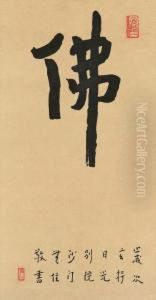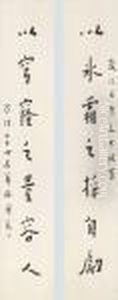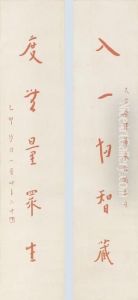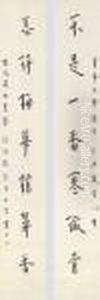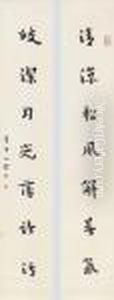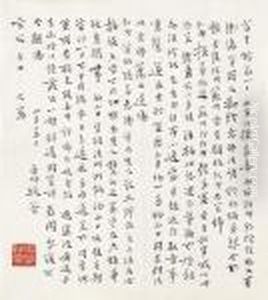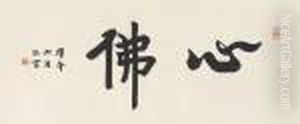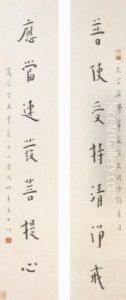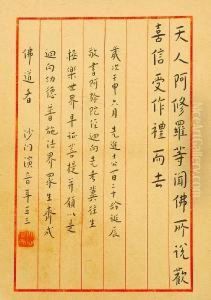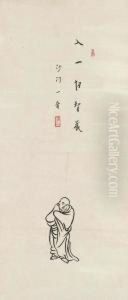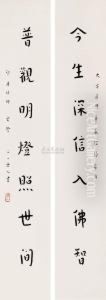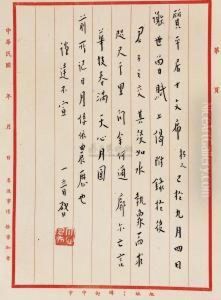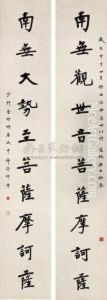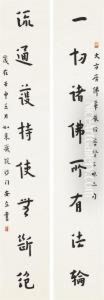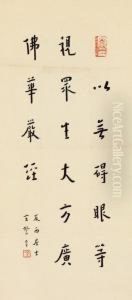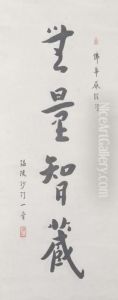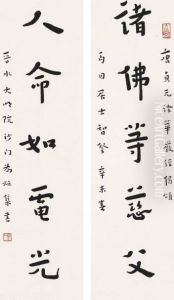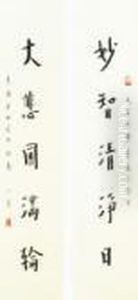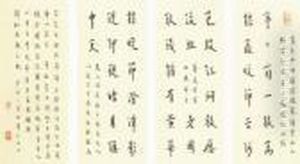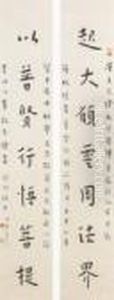Hong Yi Paintings
Hong Yi, also known as Li Shutong, was a renowned Chinese Buddhist monk, artist, and calligrapher born in Tianjin, China. Before becoming a monk, he was a prolific figure in the fields of music, painting, and education. Hong Yi was born into an affluent family and had the opportunity to study abroad in Japan, where he was exposed to various forms of art, including Western styles.
After returning to China, he became involved in the country's burgeoning cultural and educational reforms. He taught at several institutions and was known for his progressive teaching methods and his efforts to blend Eastern and Western art forms. His paintings, which often incorporated elements of both Chinese and Western techniques, were highly regarded.
In 1918, Hong Yi renounced his secular life and was ordained as a Buddhist monk, which marked a significant turning point in his life. As a monk, he adopted the name Hong Yi, and his focus shifted towards religion and spirituality. Despite his religious commitment, he continued to create art, producing calligraphy and paintings that were infused with his spiritual practice. His calligraphic works are particularly celebrated for their elegance and expressive quality.
Throughout his life, Hong Yi remained an influential figure in Chinese culture, symbolizing the fusion of traditional Chinese artistry with modern thought. His legacy is remembered for his contributions to the arts as well as his dedicated spiritual practice. Hong Yi passed away in 1942, leaving behind a body of work that continues to inspire and influence artists and Buddhists alike.
